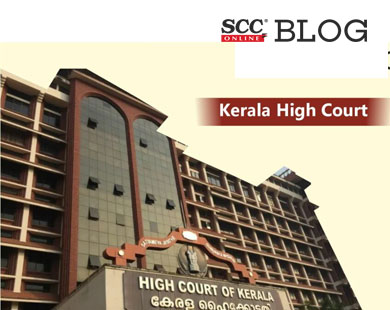Kerala High Court: While deciding a petition filed under S. 482 of Code of Criminal Procedure, 1973, the bench of A. Badharudeen, J., held that the penalty provided under S. 31 of the Domestic Violence Act, 2005 (“D.V Act”) would attract only when breach of protection orders passed under S. 18 of the D.V Act has occurred and the same would not apply to maintenance orders under S. 20 of the D.V Act.
Background
In the present case, the petitioner was directed by the Magistrate Court to pay monthly maintenance to the respondent. The petitioner stopped the payment after 3 months. Thereafter, the respondent filed a complaint alleging the commission of an offence punishable under Section 31 of the D.V Act.
Submissions on behalf of the petitioner
The counsel for the petitioner contended that protections orders provided under Section 18 of the D.V Act is different from the monetary reliefs provided under Section 20 of the D.V Act. The counsel further argued that Section 31 of the D.V Act does not enable the Magistrate to take cognizance of offence committed by violating the order passed under Sections 20 of the D.V Act.
Analysis, Law, and Decision
The Court observed that a plain reading of Section 31 shows that a breach of protection order or interim protection order shall be an offence under the D.V Act. It can be noticed that while incorporating provisions under Section 31 of the D.V Act to impose penalty on violation of protection order, the legislature never intended to impose penalty on violation of monetary reliefs.
The Court further stated that when the plain meaning of the words in the Statute is clear and unambiguous, the meaning of the said words shall be understood by its plain meaning, to accord the wisdom of the legislature. In such cases, the application of doctrine of ejusdem generis and noscitur a sociis have no application.
The Court opined that the Latin maxim noscitur a sociis contemplates that a statutory term is recognised by its associated words, which means when general words are juxtaposed with specific words, general words cannot be read in separation. Further, the Latin maxim ejusdem generis means “of the same kind or nature”, meaning thereby when general words in a statutory text are flanked by restricted words, the meaning of the general words is taken to be restricted by implication with the meaning of restricted words.
The Court concluded that the Legislature vigilantly included protection orders alone under Section 31 of the D.V Act after carefully classifying the orders that would be granted under the head protection orders under Section 18 of the D.V. Act. Therefore, the Court cannot overturn the legislative wisdom to hold that a monetary relief such as payment of maintenance, if disobeyed, would be treated as breach of protection order or interim protection order and attract significant penalty under Section 31 of the D.V Act
The Court held that the penalty provided under Section 31 of the D.V Act would attract only for breach of protection orders passed under Section 18 of the D.V Act and the same would not apply to maintenance orders under Section 20 of the Act. Hence, the Court allowed the petition.
[Suneesh v. State of Kerala, 2022 SCC OnLine Ker 6210, decided on 05-12-2022]
Advocates who appeared in this case :
Counsel for Petitioner:- Advocate James Abraham;
Counsel for Respondents:- Advocate M.B. Shyni, Advocate John K. George, Advocate Sri. G. Sudheer.






